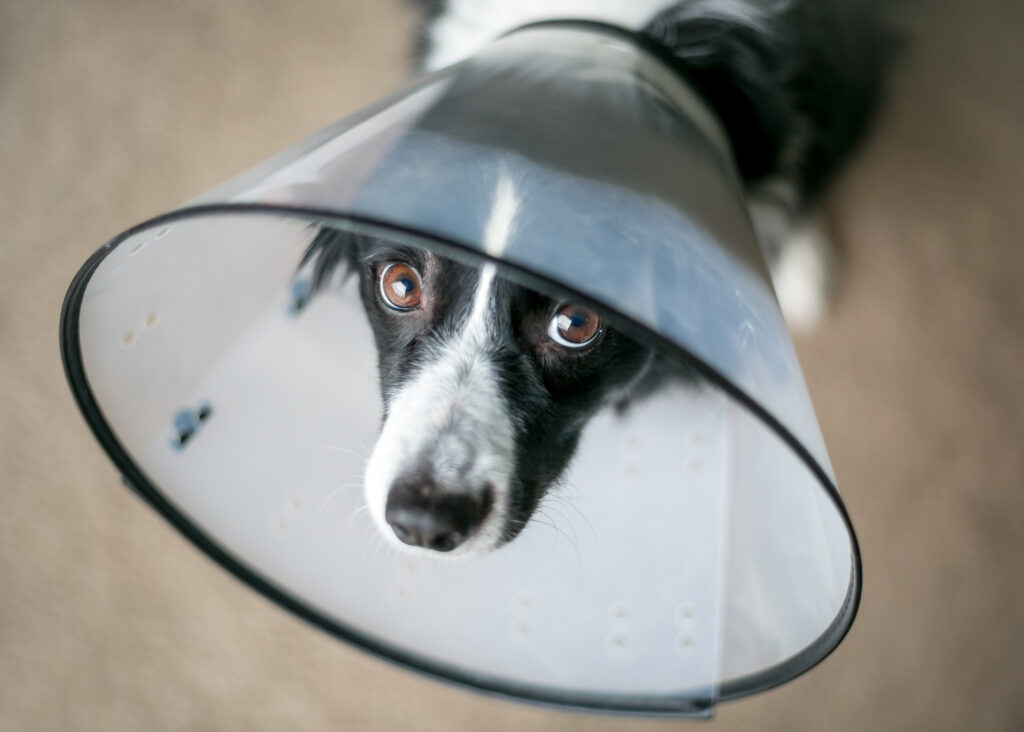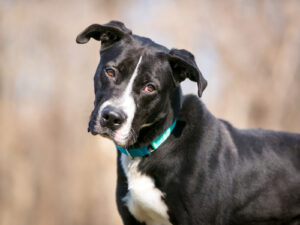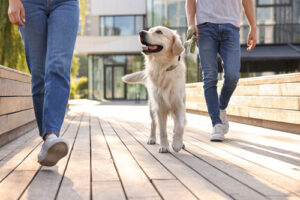If you’ve been considering neutering your dog, or if you’ve already scheduled the procedure, you might have some questions about what to expect afterward. This blog will provide insights into some changes in behavior you might notice in your dog post-neutering. We’ll also share tips on ensuring your dog’s smooth and comfortable recovery. If you have more questions or need specific advice, our team at Park Veterinary Hospital in Fort Lauderdale, FL, is here to help. Feel free to call us at (954) 561-8387.
Understanding Post-Neuter Behavior in Dogs
Neutering your dog can lead to several behavioral changes. These changes are primarily due to the decrease in hormones like testosterone. Here’s what you might notice:
Decreased Aggression and Roaming
Neutering often results in reduced aggression. Dogs are less likely to show dominance or territorial behaviors, which can make them easier to manage, especially around other dogs. Additionally, neutered dogs typically have a lower urge to roam. This change can significantly decrease the risk of accidents, fights with other animals, and getting lost.
Changes in Activity Levels
After neutering, some dogs may show a change in their activity levels. While many continue to be just as active and playful as before, some might become a bit more relaxed or less hyperactive. It’s important to monitor these changes and adjust your pet’s exercise and diet accordingly to maintain a healthy weight and lifestyle.
Reduced Marking and Other Behaviors
Neutering can also reduce or eliminate behaviors such as marking territory with urine and mounting. These behaviors are often driven by hormones, and with the reduction in hormone levels post-neutering, many dogs stop these behaviors altogether.
Ensuring a Comfortable Recovery After Neutering
Recovering from neutering is generally straightforward, but it does require some special care to ensure your dog is comfortable and heals properly.
Creating a Restful Environment
Your dog will need a quiet and comfortable place to rest after surgery. Keep them in a calm environment, away from loud noises and active children or other pets. Soft bedding and easy access to fresh water are also important.
Following Veterinary Instructions
Adhering to your veterinarian’s instructions is crucial for a smooth recovery. This includes giving any prescribed medications, keeping the cone on to prevent licking the incision site, and monitoring for signs of infection or discomfort. Limiting physical activity is essential; even if your dog seems energetic, too much movement can hinder the healing process.
Dietary Considerations
Your dog might have a reduced appetite immediately after surgery. Offer them small, easily digestible meals. If the lack of appetite persists, consult your veterinarian for advice.
Personality Changes After Neutering: Fact or Myth?
Many dog owners wonder if neutering will change their dog’s personality. Let’s explore this common concern.
What Research Says
Research suggests that while neutering can reduce certain behaviors driven by hormones, like aggression or roaming, it doesn’t fundamentally change a dog’s personality. Your playful, affectionate dog will likely stay just as playful and affectionate after the neuter procedure.
Understanding Individual Differences
Every dog is unique, and their response to neutering can vary. Observing your dog and staying in communication with your vet can help you navigate any changes you notice.
Contact Us for More Information About Dog Neutering
Remember, if you have any concerns or need specific advice about your dog’s neuter procedure and recovery, our team at Park Veterinary Hospital in Fort Lauderdale, FL, is ready to assist. Just give us a call at (954) 561-8387. We’re here to ensure both you and your dog have a positive experience during this important time.






